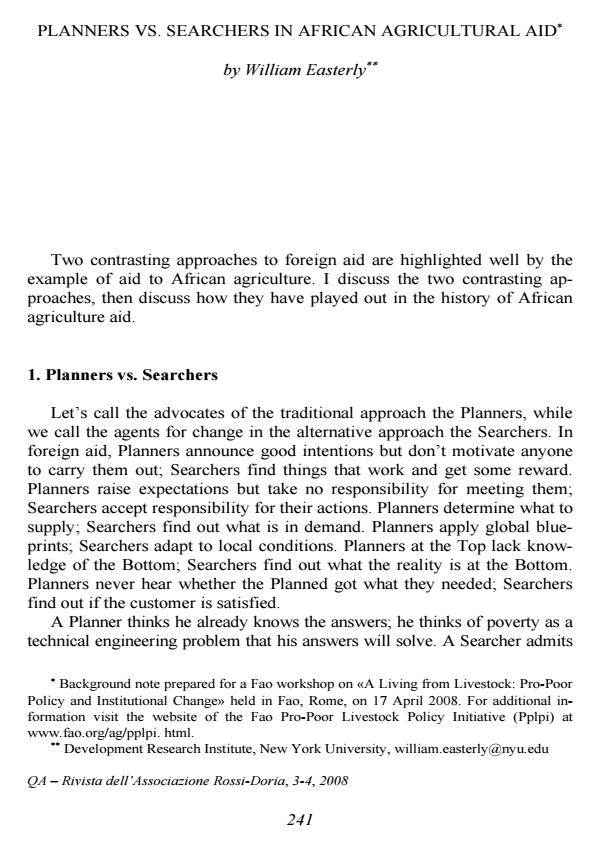Planners vs. Searchers in African Agricultural Aid
Titolo Rivista QA Rivista dell’Associazione Rossi-Doria
Autori/Curatori William Easterly
Anno di pubblicazione 2009 Fascicolo 2008/3-4
Lingua Italiano Numero pagine 7 P. 241-247 Dimensione file 184 KB
DOI 10.3280/QU2008-003010
Il DOI è il codice a barre della proprietà intellettuale: per saperne di più
clicca qui
Qui sotto puoi vedere in anteprima la prima pagina di questo articolo.
Se questo articolo ti interessa, lo puoi acquistare (e scaricare in formato pdf) seguendo le facili indicazioni per acquistare il download credit. Acquista Download Credits per scaricare questo Articolo in formato PDF

FrancoAngeli è membro della Publishers International Linking Association, Inc (PILA)associazione indipendente e non profit per facilitare (attraverso i servizi tecnologici implementati da CrossRef.org) l’accesso degli studiosi ai contenuti digitali nelle pubblicazioni professionali e scientifiche
Planners vs. Searchers in African Agricultural Aid - A Planner vs. Searcher paradigm is used to illustrate the lack of positive progress in aid to African agriculture. Planners announce good intentions, raise expectations, but take on no responsibility in meeting them; they determine what to supply, apply global blueprints but lack knowledge of the basics. Searchers find out what the reality is at bottom, find out what is in demand, find things that work, and accept responsibility for their actions. The prevalent approach in African Agricultural aid has been that of the Planners, but the ambitious agricultural development plans advocated have largely failed. Aid agencies could play a much more helpful role by working as Searchers rather than Planners, which means trial and error experimentation, rigorous independent evaluation, and drawing on local knowledge rather than presuming that the answers coming from outside are the best
William Easterly, Planners vs. Searchers in African Agricultural Aid in "QA Rivista dell’Associazione Rossi-Doria" 3-4/2008, pp 241-247, DOI: 10.3280/QU2008-003010